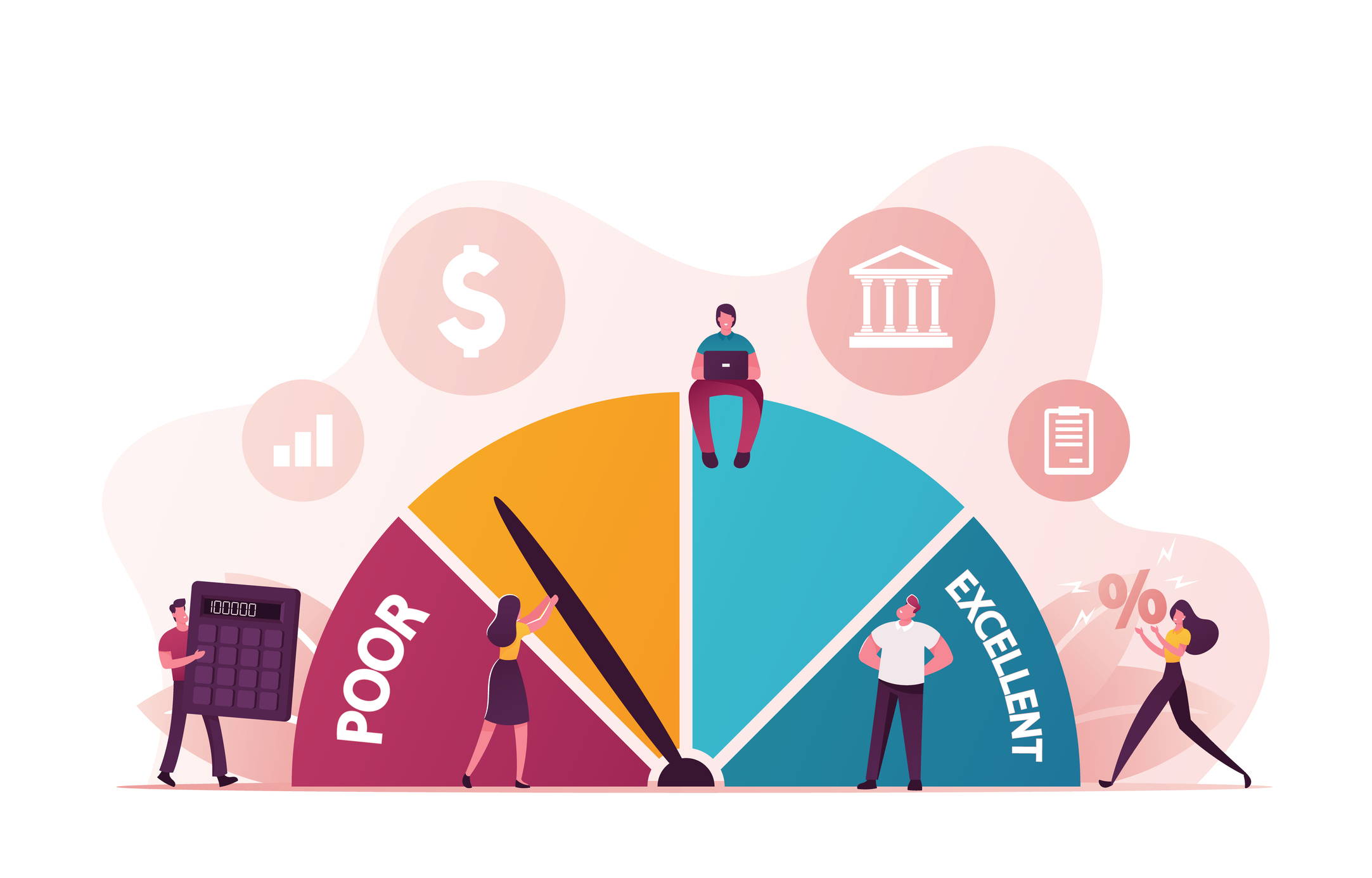
Prime vs. Subprime Credit Score
You’ve likely heard of prime and subprime credit scores, but do you know the difference between the two? Though it’s a relatively easy distinction, it’s one that is often misunderstood, and doing so can have very real financial consequences. Below we offer an easy to digest breakdown of these concepts and offer solutions for repairing subprime credit.
How Do I Know If I Have Subprime Credit?
Your credit score is a major factor in your ability to receive a loan, and in the determination of the terms that come with that loan. Most lenders and credit card companies use your credit score to determine your risk as a borrower. Those who have a worse—read: higher—credit score will be considered higher risk and be required to pay a higher interest rate or meet other terms on their loan to offset that risk.
Generally speaking, credit scores are categorized as bad, poor, fair, good or excellent. A subprime designation encompasses scores labeled as bad, fair or poor, while prime refers to scores that are good or excellent. Superprime credit refers to those rated above excellent. The credit score system is just a number system to reflect the same spectrum.
Each lender will have their own system and criteria for determining who is prime and subprime, but usually scores 659 and lower are considered subprime. Scores 579 and below are considered deep subprime. Scores above 659 are generally considered prime, and those that exceed 800 are considered superprime credit scores.
Again the credit terms and rates of interests will vary by lender, but prime and super prime borrowers are more likely to qualify for loans and credit cards with more favorable terms, interest rates, perks and rewards. Credit cards and loans for individuals with poor credit, or even no credit, do exist, but they are usually accompanied by less than favorable terms, little rewards and high interest rates.
The big takeaway? A prime or superprime credit score makes it both easier and more affordable to get a credit card, access a loan for the purchase of a home, higher education, buying a new car or any other major purchase that requires a large amount of capital. While you may be able to access a loan or line of credit regardless of your score, subprime borrowers will often have to pay thousands or tens of thousands more over the term of their loan just to access that money. They may even be required to have a cosigner—someone else with better credit—sign on to the loan as well. This is best avoided, and with some diligence and professional help, it can be.
What Factors Impact My Credit Score?
Responsibly using credit by regularly making on-time payments and maintaining a low balance on credit cards over time is the best way to build a good or excellent credit score. Inconsistent or missed payments on the other hand have an adverse effect. Having no or very little credit history may also negatively impact your score, as lenders will not have enough information to assess your repayment ability and habits.
The following factors can lead to a subprime credit score:
- A history of late payments on credit or existing loans can cause a drop in your credit score. Most lenders report late payments to the three major credit bureaus after 30 days, and submit additional reports after 60 and 90 days.
- A high credit utilization ratio, or the amount of available credit you are currently using, can cause a lower credit score. 10%-30% credit utilization is generally considered to be ideal.
- Defaulting on current debt, or a history of debt defaults can be detrimental to your credit score.
- Similar to defaulting on debt, a history of bankruptcy or legal judgments is often viewed as a serious strike against one’s credit. These remain on your credit report for 7-10 years!
How Can I Improve My Credit Score?
Above we’ve provided an overview of why it’s financially beneficial to have a prime or better credit score. It can literally save you thousands and thousands of dollars! Your credit rating can influence your life in very tangible ways, like being the difference maker between becoming a homeowner vs. a lifetime renter.
Responsible financial planning includes a consideration of your borrowing and credit capacity, and efforts to make sure you have access to favorable lending opportunities. Whether you have subprime credit and are looking to break through the 659 threshold, or you’re looking to improve upon a current prime rating to achieve a superprime score (and the terms that come with it!), here are some strategies that will help you reach your goal:
- Check your credit report and your credit score using a free credit check tool. Unless you know where you currently stand, you won’t be able to make a plan for improvement.
- While reviewing your credit report, keep an eye out for anything that looks inaccurate, and dispute these erroneous reports if possible.
- Set up auto payments when possible for bills and other monthly payments. When you can’t set up auto payments, set email or phone reminders so that you never miss a payment and avoid the dings to your credit that late payments bring.
- Pay down your debt to maintain an ideal credit utilization ratio.
- If you have outstanding late payments or items that have gone to collections, get caught up on payments ASAP. The sooner you clear these up, the better.
- Achieve credit longevity by keeping old accounts open. Even if you don’t use them, or use them seldomly, it’s better to leave them open so that the length of your credit history can contribute positively to your score.
- Don’t apply for too many loans or credit cards in a short period of time. This is often viewed as a red flag by lenders
- Create a budget that focuses on eliminating or reducing debt, and establishes a plan for prompt on-time payment moving forward. Slowly but surely you can repair or build your credit!
Your credit plays an enormous role in your life and is not a matter to be taken lightly. We’ve provided a brief overview here to help you understand how the system works, and our professionals are at the ready to help you employ all tools possible to get you where you need to be for the financial future you envision. Give us a call today to hit the road to better credit!
